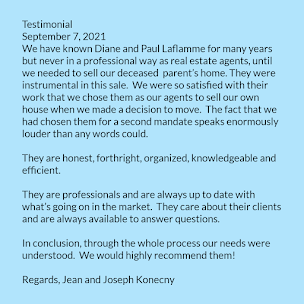Sunday, June 19, 2011
Ask the Expert: The mortgage game
CHECK OUT MY TWITTER PAGE:
https://twitter.com/DianeLaflamme
With anticipated interest rate increases on the horizon, many homeowners are wondering whether to lock debt such as mortgages and secured lines of credit into a fixed-rate mortgage or stay variable. Even some who are mortgage free are concerned with how rate increases will impact secured lines of credit, the financing of vacation homes and recreational property.
First-time buyers may be particularly concerned with entering the national capital’s expensive real estate market.
What can you afford?
As a first time home buyer, it’s essential to figure out what you can afford. A quick rule of thumb is that your household expenses should not add up to more than 40 per cent of your pre-tax household income. Household expenses include mortgage payments, property taxes, condo fees, utility and heating costs, and any payments on other loans such as car loans, credit card debt and lines of credit.
Probably the first step should be to get a copy of your credit history from Equifax Canada and/or the credit bureau. As this is what lenders will look at, it’s important to review its accuracy.
Then do a household budget, list your assets and liabilities and meet with a bank or mortgage broker to get pre-approved for a mortgage. Try the monthly payments on for size. Let’s assume that your current rent is $1,000 and your anticipated payment as a homeowner is $2,350 for principal, interest, taxes, hydro, etc. Try putting aside the extra $1,350 immediately. Not only will this help you save some extra money, but it will get you in the habit of allocating this level of payment every month. Consider the maintenance costs as well, from normal upkeep to potentially larger expenses like a new roof or furnace.
It’s important to find out how much you can afford before falling in love with a house.
Start saving before you start shopping — the larger the down payment, the lower the financing costs. Although it’s not always possible for first-time home buyers, try to come up with at least a 20-per-cent down payment. Any down payments below this level must be insured with Canada Mortgage and Housing Corporation (CMHC) or Genworth Financial — another expense to factor in.
To assist with your down payment, consider using the Home Buyer’s Plan, which allows you to withdraw up to $25,000 from your RRSP for the purchase of a qualifying home.
Work with a real estate agent familiar with the area you would like to live in, an experienced home inspector and a real estate lawyer to help draft an offer and ensure that title is transferred properly.
Mortgage options
A recent survey indicated that more than 60 per cent of Canadians expect rates to rise over the next 12 months. With this in mind, here are some mortgage strategies to consider.
Fixed rate: If the prospect of rate increases is causing you significant concern, then perhaps you should consider locking in all or some of your debt. With the inflated home equity line of credit rates that consumers have been charged (prime plus 0.5 to one per cent instead of the traditional prime), it’s not that big a jump to a five-year fixed rate, perhaps as little as one per cent more.
If your fixed-rate mortgage is renewing in 2011 and you are interested in another fixed-rate mortgage, it may be worthwhile negotiating with your lender to close out your current mortgage and move into the new lower rate mortgage without penalty. As a strategy to pay off the mortgage sooner, consider increasing the payment and utilize weekly or accelerated bi-weekly payment schedules.
If you would like some level of security but don’t want a fixed rate on all your debt, consider a blend where a portion is at a fixed rate and the balance at a variable rate.
Variable rate: There are many studies that show that despite its volatility, a variable-rate mortgage tends to save more interest in the long term.
Subscribe to:
Posts (Atom)







